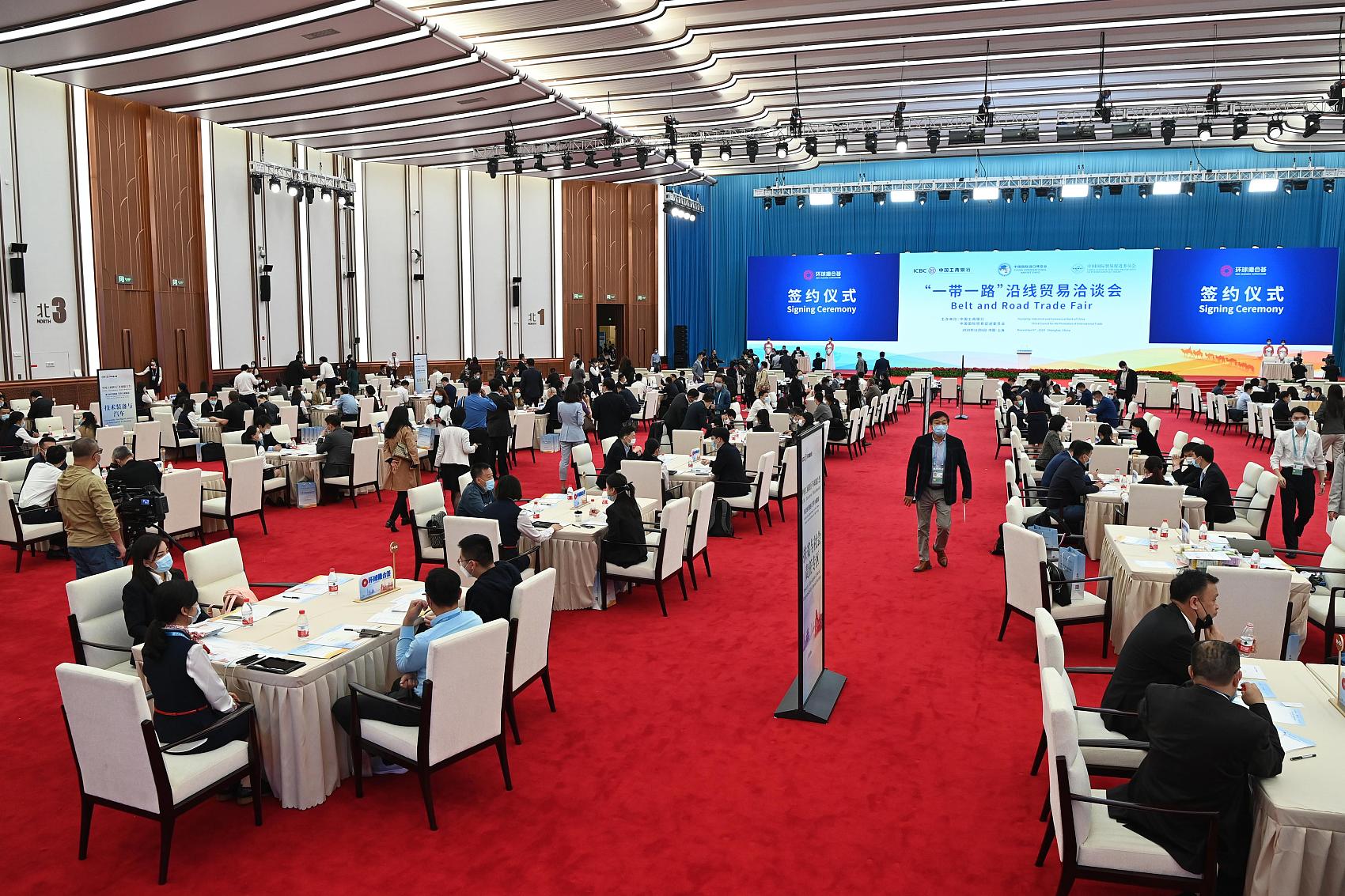The third China International Import Expo is promoting wider and deeper collaboration between China's State-owned enterprises and businesses around the world. This further testifies the country's commitment to opening-up, said business leaders from both domestic and foreign companies.

(File photo: CFP)
The majority of China's 98 centrally-administered SOEs-including China State Shipbuilding Corp, China Grain Reserves Group Ltd and China State Construction Engineering Corp-have all signed purchase and cooperation deals with foreign companies such as Siemens, Honeywell, ABB and Dow Chemical during the third CIIE being held in Shanghai from Thursday to Tuesday, said the State-owned Assets Supervision and Administration Commission of the State Council.
"The appeal of the previous two CIIEs was beyond our expectations and the feedback was overwhelming. It has opened a brand-new world for our businesses to better connect with other leading global companies to develop projects across the world, especially in markets related to the Belt and Road Initiative," said Wang Tongzhou, chairman of Beijing-based China Communications Construction Co Ltd.
For instance, Japanese businesses are proficient in forming consortia to conduct projects in overseas markets. These can be formed by manufacturers, infrastructure project contractors, banks, insurance companies, and other types of service suppliers, he said, adding that Chinese companies can learn from this practical method and deepen cooperation with their Japanese partners.
"As an international carrier, we are always committed to working with global suppliers and partners to better serve our passengers. And the expo has provided us a great platform for sourcing and collaboration," said Wang Changshun, chairman of China Southern Airlines.
Jeffrey Wong, head of advisory for China business at global consultancy KPMG, said as many economies have been forced to a standstill due to the COVID-19 pandemic, the CIIE is a great opportunity for global companies interested in expanding in the Chinese market.
More than 70 percent of Fortune 500 companies and major players from different industries, including many newcomers, are in Shanghai for the expo this year, and some of them have already signed up for the event for the next three years, with the expo emerging as the platform of choice for many to launch new products and showcase new technologies, according to the CIIE Bureau, the event's organizer.
China is accelerating a new development pattern in which the nation's domestic and international-focused economic engines support each other. This will create more opportunities and space for foreign companies to develop in China, and will help foster new advantages for multinational companies to cooperate with Chinese counterparts, especially SOEs, Wong said.
As China rolls out its 14th Five-Year Plan (2021-25), he said Chinese companies must not only be aligned with the country's goals for the development of the domestic economy, but also pay close attention to global economic and commercial trends. In addition to addressing the individual challenges they face, they should benchmark their practices against industry-leading firms both at home and abroad.
"Therefore it is necessary for SOEs to strategically develop entire value chains surrounding their products and services, while promoting lean management, innovation and reform," said Wong. "While having a long-term vision for future development is critical, they must also develop sufficient short-and medium-term development goals."
The ability of SOEs to develop systematically by demonstrating clear vision, vitality, capacity building and industry deployment defines the objective of "high-quality growth", he added.
"We expect SOEs to build more scientific and assessable cost and performance management systems centered on institutional innovation, management transformation and cost optimization," he said, adding that this will be an important starting point for SOEs to improve cost and performance management, enhance the comprehensive effect of reforms and boost technological innovation.


